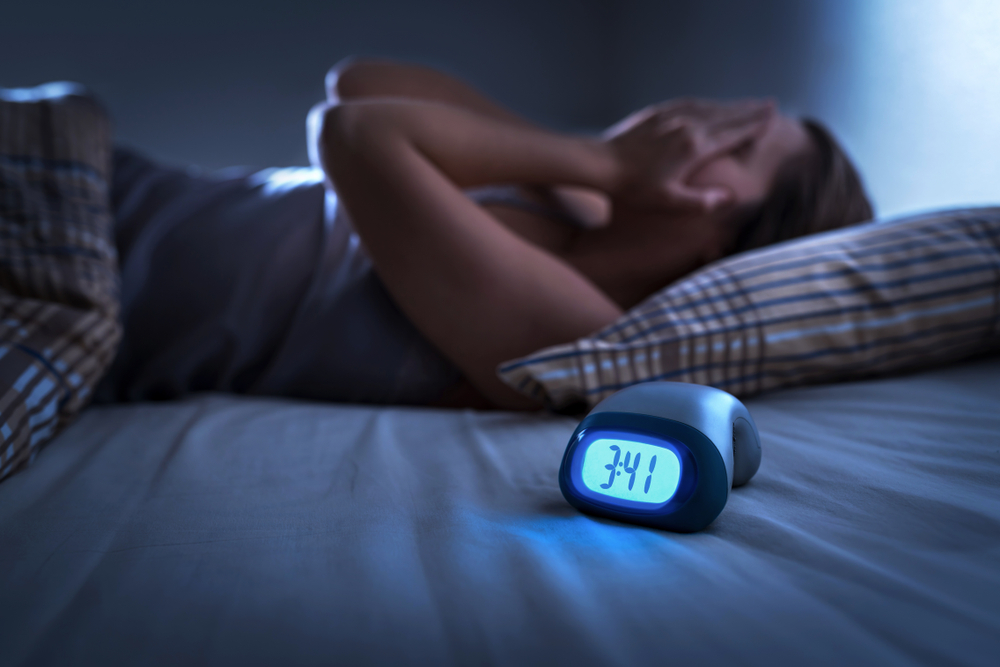Sleep is extremely essential for the overall well-being of a person, be it a child, a teen, or an adult. For a teen, it plays a very important role as it helps in keeping the grades up, participating in sports and other extracurricular activities, and staying healthy. But ensuring that teens get the needed rest can help them maintain a proper sleep cycle. It can help them as they have a busy social and academic life not to mention their addiction to screens.
Effect of Screen time on Sleep
Teens in the modern era are exposed to various shapes and sizes of video screens, a few decades back TV was the most common screen but these days there is a plethora of screens ranging from iPad, smartphone, laptops to gaming devices, and has resulted in various sleep issues.
Insomnia: Teens are up late at night interacting with friends on social media or playing games when you should rather be sleeping. However, there is no change in the school timings so waking up early can lead to, feeling groggy in the morning. That can affect the learning and thinking capability in school.
Bluelight effect: Even if your teen is not using a screen and sticks to a regular sleep schedule watching it just before bedtime affects sleep quality. These electronic devices emit a blue light that can affect the production of melatonin, which is a sleep-inducing hormone. When that hormone is not produced properly, the body’s internal clock which controls the sleep-wake cycle is disturbed. The more time they spend using electronic devices in the evening there will be a delay in melatonin production which leads to delay in the onset of sleep. It also affects the various stages of sleep as they sleep fewer hours than they should and overtime causes sleep deprivation.
Screentime stimulates brain: Usage of the screen even a few hours before bed stimulates the brain and makes the teen more active than they should. Apart from the delay in melatonin production when the brain gets stimulated, getting sleep becomes that much harder. If the teen is playing a video game or chatting, there is all the more reason that the mind is alert and results in a delay in sleep.
Effects of Sleep Deprivation
Excessive usage of electronic devices before bedtime impacts sleep. That, in turn, has various side effects like:
Mental and behavioral issues: A study conducted on high school students found that those who were sleep-deprived had mental health issues. It also reported that every hour of less sleep caused a feeling of sadness and hopelessness and also increased the chances of substance abuse. Additionally, it also impacts the teen’s judgment, decision-making ability, and creativity apart from causing slower reactions. It was also seen that sleep deprivation among teens increased the chances of risky behavior by them.
Weight gain: The vital functions of the body are intricately linked to sleep. For example, blood sugar regulation, hormone, and enzyme regulation are interconnected to sleep. Fats and sugar are processed at specific stages of sleep and so is the metabolism. When that is disturbed it leads to a higher risk of weight gain and obesity in teens.
Can cause poor performance: Sleep is important for many cognitive functions, it has an effect on learning and memory. Research suggests that when teens sleep for less than their quota for a few weeks, they start to perform poorly as they are unable to stay alert and awake. Teens who sleep adequately perform better in tasks related to learning and memory than those who were sleep-deprived.
Students not just lag in studies when they don’t get quality and quantity sleep, they also perform poorly in sports. Teens who sleep less have less focus on games, are fatigued, and lack energy in general. Additionally, they take longer to recover from muscle fatigue all leading to poor performance.
How much is too much?
There is evidence to show that too much screen time affects children and teens. Though it is impossible to completely cut down the usage as these electronic devices are highly useful, limiting usage helps. Screen time of more than 2 hours overall during the day can cause sleep deprivation. Also, restrict usage just before bed as the blue light these devices emit causes sleep issues. Consider setting a digital curfew and no usage before bed policy. Parents should help their teens set a realistic time for electronic device usage and also introduce a no electronic device in sleeping place policy.
Another important aspect that can help improve sleep quality is to create the right sleeping environment. Teens should have a comfortable mattress and pillow, preferably a memory foam mattress to sleep on. You can order a WakeFit mattress online if the current bed is not providing the right comfort. Ensure the room is dark, has optimal temperature, and is noise-free to get enough sleep.
The tech devices like laptops, smartphones, tablets have a lot of benefits including the ability to stay connected with people, getting access to information at fingertips, and much more. But if overused it can affect the sleep cycle and hence parents should enforce some restrictions to limit usage. That will help them use these devices safely without affecting sleep duration.

